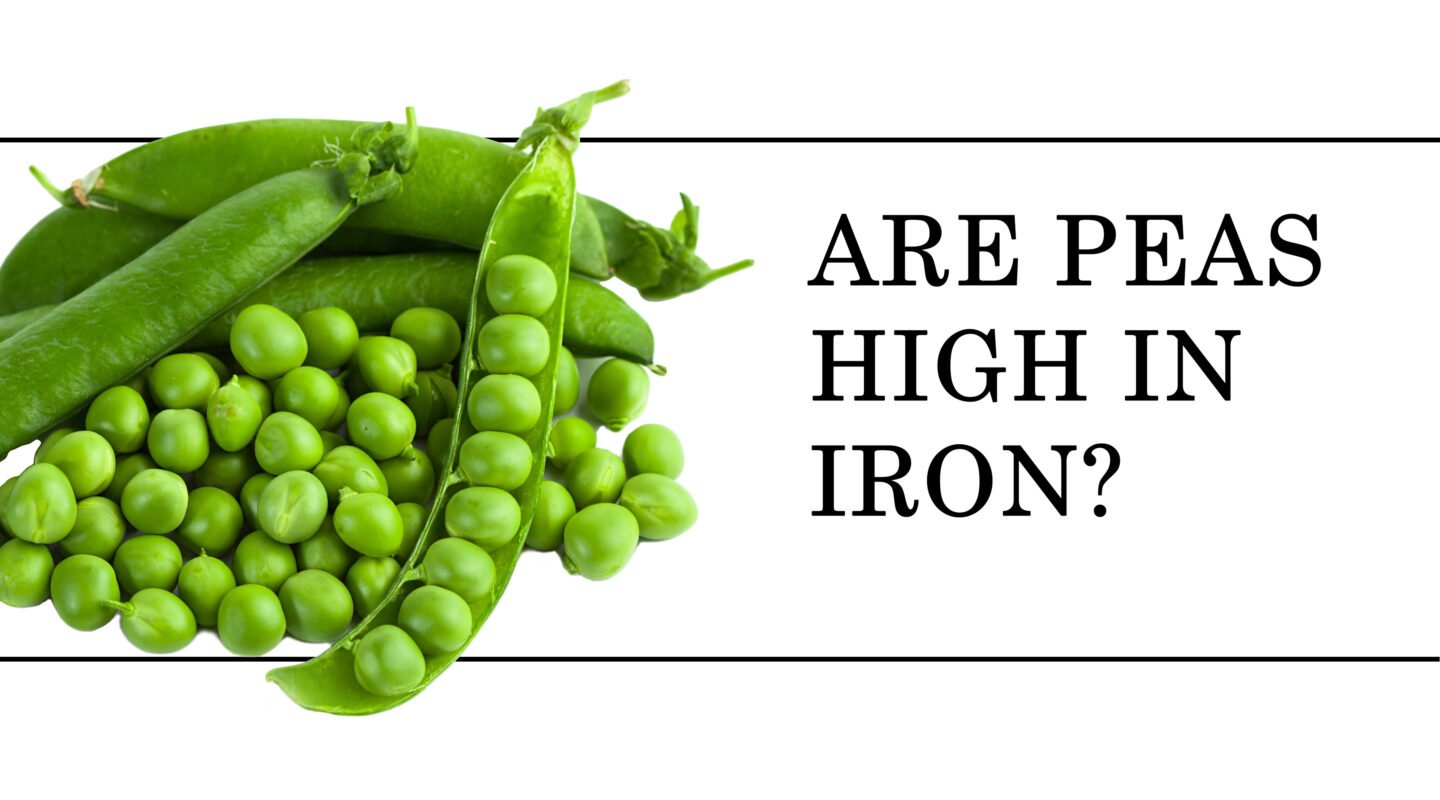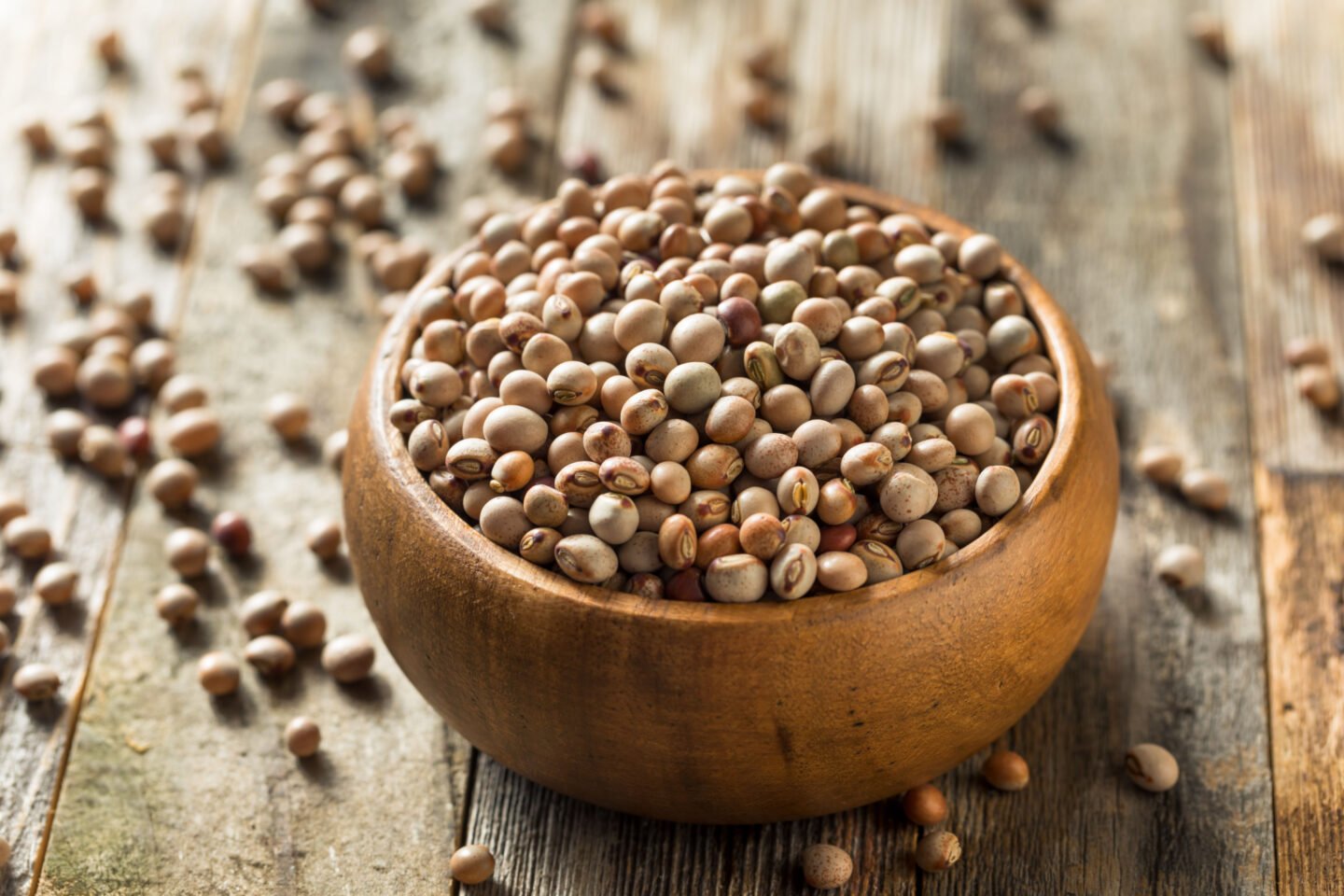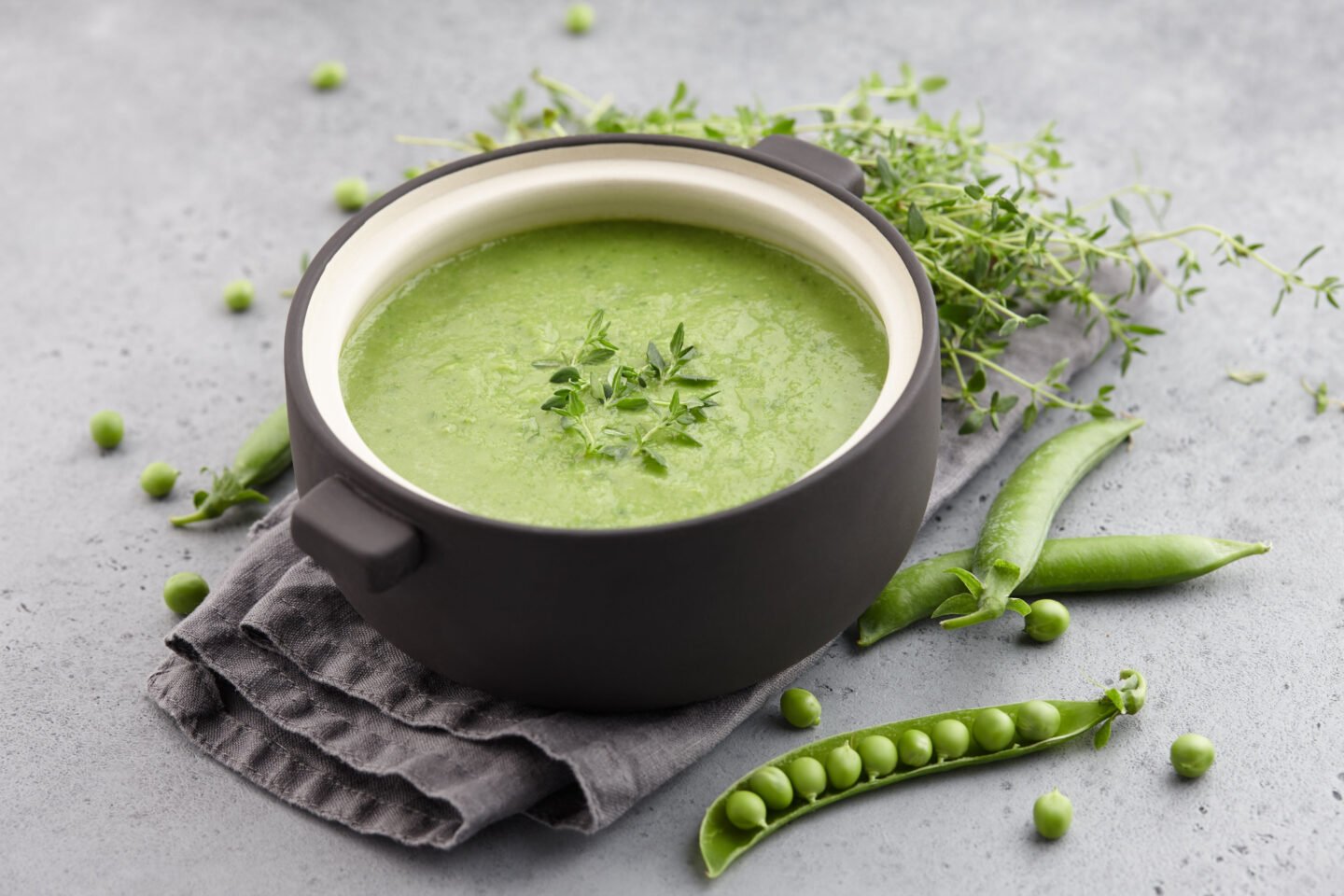Getting enough iron is essential for everyone, not just those susceptible to iron deficiency and anemia, as it keeps your energy levels high and assists your gastrointestinal system.

Fortunately, a lot of foods are high in iron, enabling you to craft a varied meal plan that ensures you get enough of this essential mineral. Peas, for example, contain a good amount in a small serving.
Table of Contents
Are Peas High or Low in Iron?
Peas are a great source of iron, especially for those who follow a vegetarian or vegan diet. Adding raw or cooked peas to your diet is a great way to prevent iron deficiency and anemia.
Peas are also a great source of fiber and protein, which help with weight control. As they also contain vitamin C, B vitamins, and minerals, they’re an excellent addition to a healthy, balanced diet.
How Much Iron Is in Peas?
One cup of cooked peas provides you with 2.5 mg of iron, 14% of the recommended daily intake.
Like all vegetables, the iron in peas is non-heme, which is harder for your body to absorb than the heme iron in animal products.
Vitamin C improves the absorption of non-heme iron, so it's important to include good sources of this vitamin in your diet.
Can You Get Enough Iron from Peas?
As a serving of peas contains around 38% of the recommended daily intake of vitamin C and a good amount of iron, they're a great way to boost your intake.
In addition, peas contain vitamin B12, folate, and protein, which all help prevent anemia.
Are Edible-Podded Peas High in Iron?
Snow or snap peas are often eaten raw, either just the peas or the whole pod. They have a very sweet taste and are a healthy snack that is low in calories.
They're slightly lower in iron than regular peas, containing 1.3 mg of iron or about 7% of the recommended daily intake.
Are Pigeon Peas High in Iron?

Pigeon peas are a variety that's often added to rice dishes, soups, and other meals, improving their nutritional profiles.
One cup of cooked pigeon peas contains about 1.9 mg of iron, 10% of the recommended daily intake.
Although that's less than regular peas, pigeon peas are still a great source of iron, and they're rich in protein, thiamin, folate, and manganese.
Are Sprouted Mature Peas High in Iron?
One cup of cooked sprouted mature peas contains 2.5 mg of iron, about 14% of the recommended daily intake.
Sprouted mature peas also contain a lot of vitamin C, protein, riboflavin, magnesium, and manganese.
Are Split Peas High in Iron?
One cup of cooked split peas contains the same amount of iron as regular peas. They also contain a lot of thiamin, vitamin K, folate, potassium, and protein.
So split peas are another excellent, iron-rich addition to your diet.
Are Canned Peas High in Iron?
As the canning process breaks down minerals, one cup of canned peas contains about 0.8 mg of iron, which is a lot less than fresh.
However, canned peas are high in vitamin C, vitamin K, and manganese, so they're still a good addition to a healthy, balanced diet.
Is Pea Soup High in Iron?

Pea soup is one of the best soups for increasing your iron intake, with one serving containing about 1.9 mg of iron, or 11% of the recommended daily intake.
Unfortunately, like most soups, pea soup can be high in sodium, which is bad for your health in large quantities.
If you make your soup at home, use healthy ingredients and avoid adding too much salt or too many stock cubes. Commercially prepared pea soup contains essential minerals and electrolytes, but consume it in moderation.
Conclusion
Peas are a great way to increase your iron intake and prevent anemia.
They also contain other nutrients that help treat the symptoms of anemia.
Besides iron, peas are rich in vitamins, minerals, and protein, so adding them to your diet brings many health benefits.
Sources: Nutrition Data, PMC, Research Gate, and National Library of Medicine
